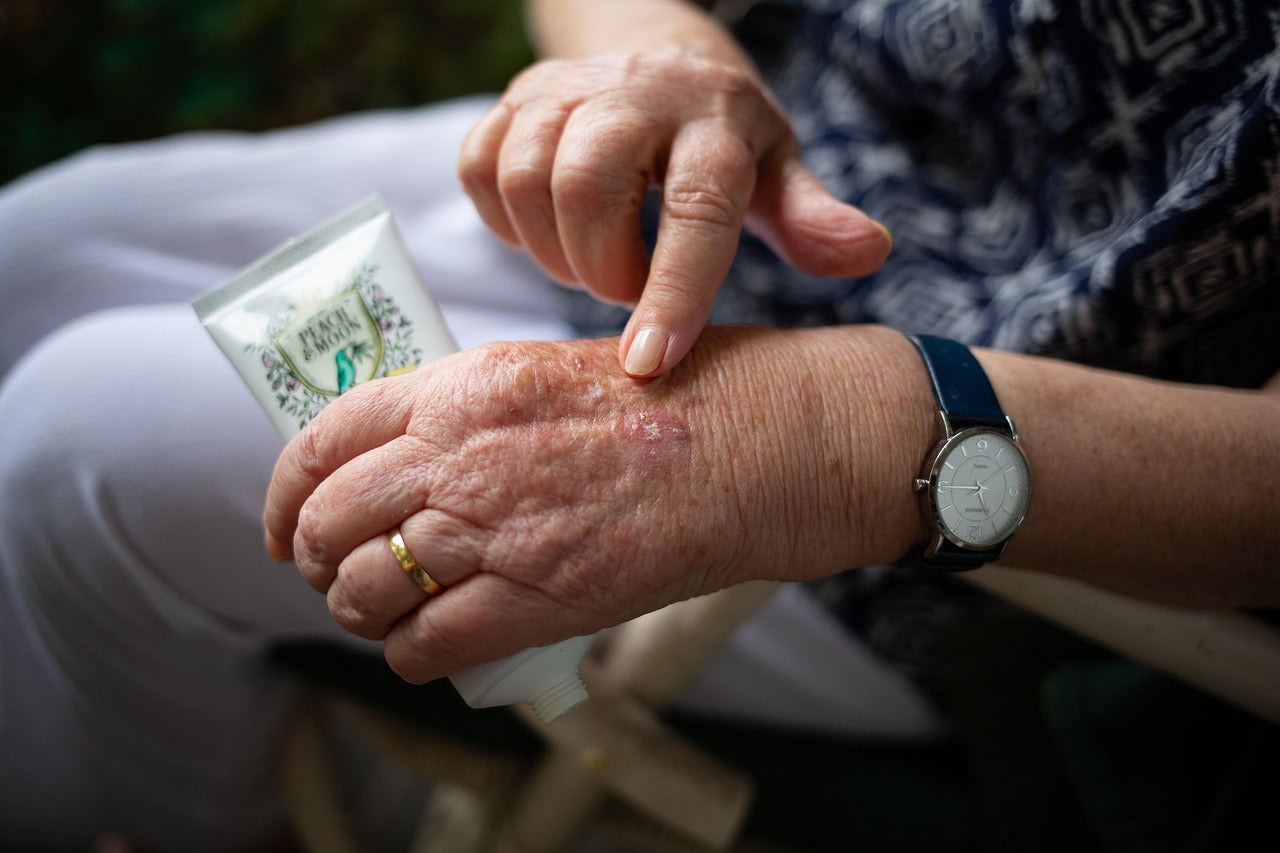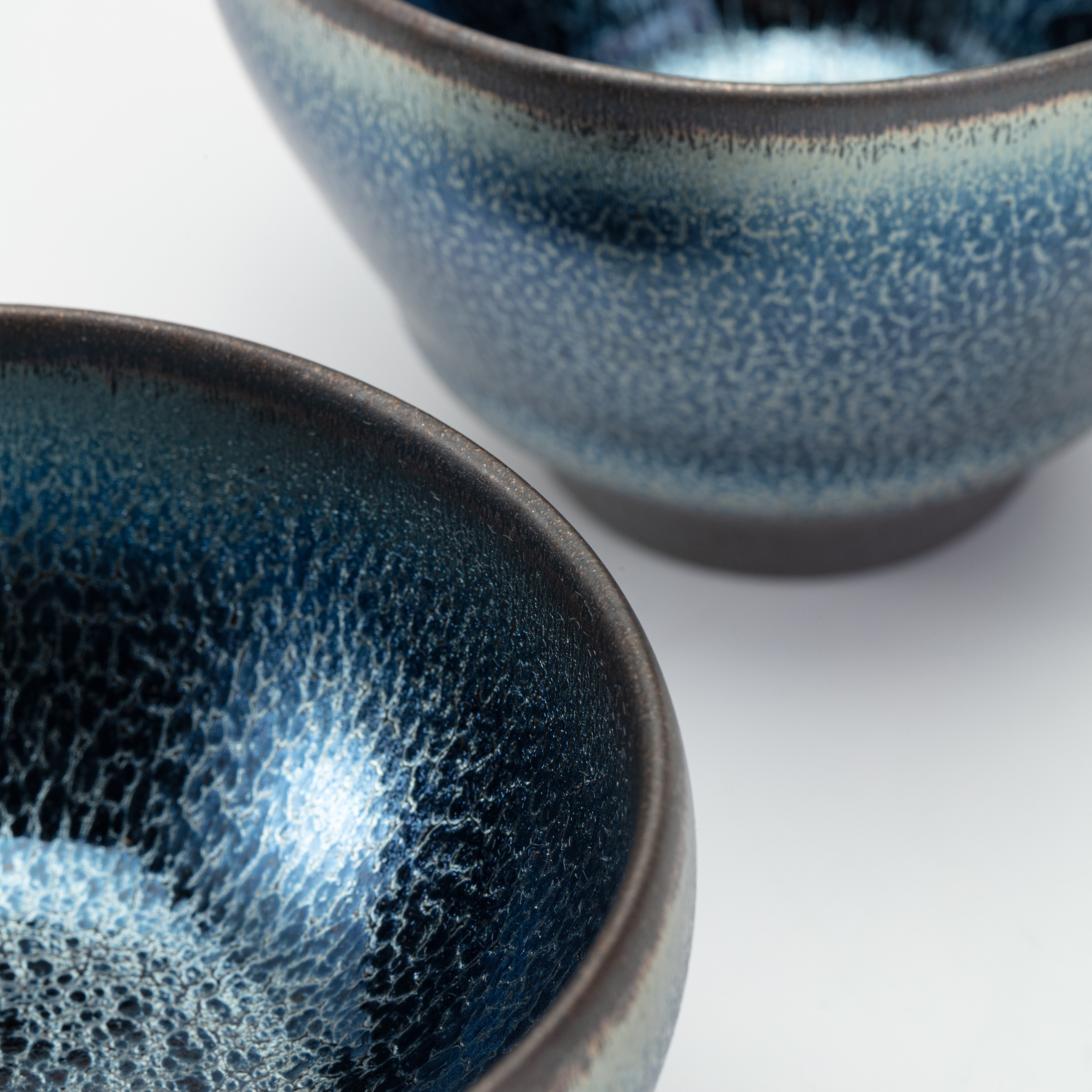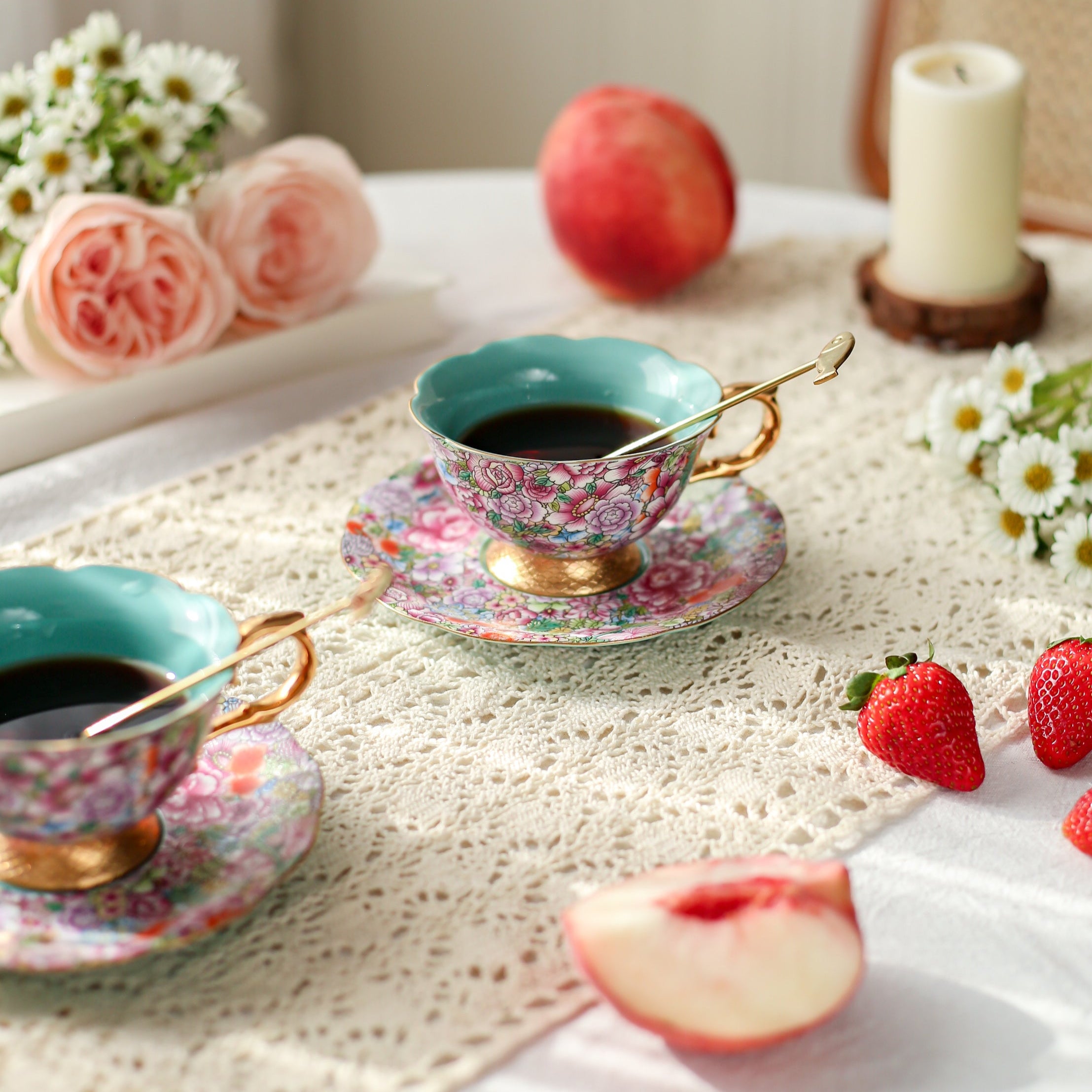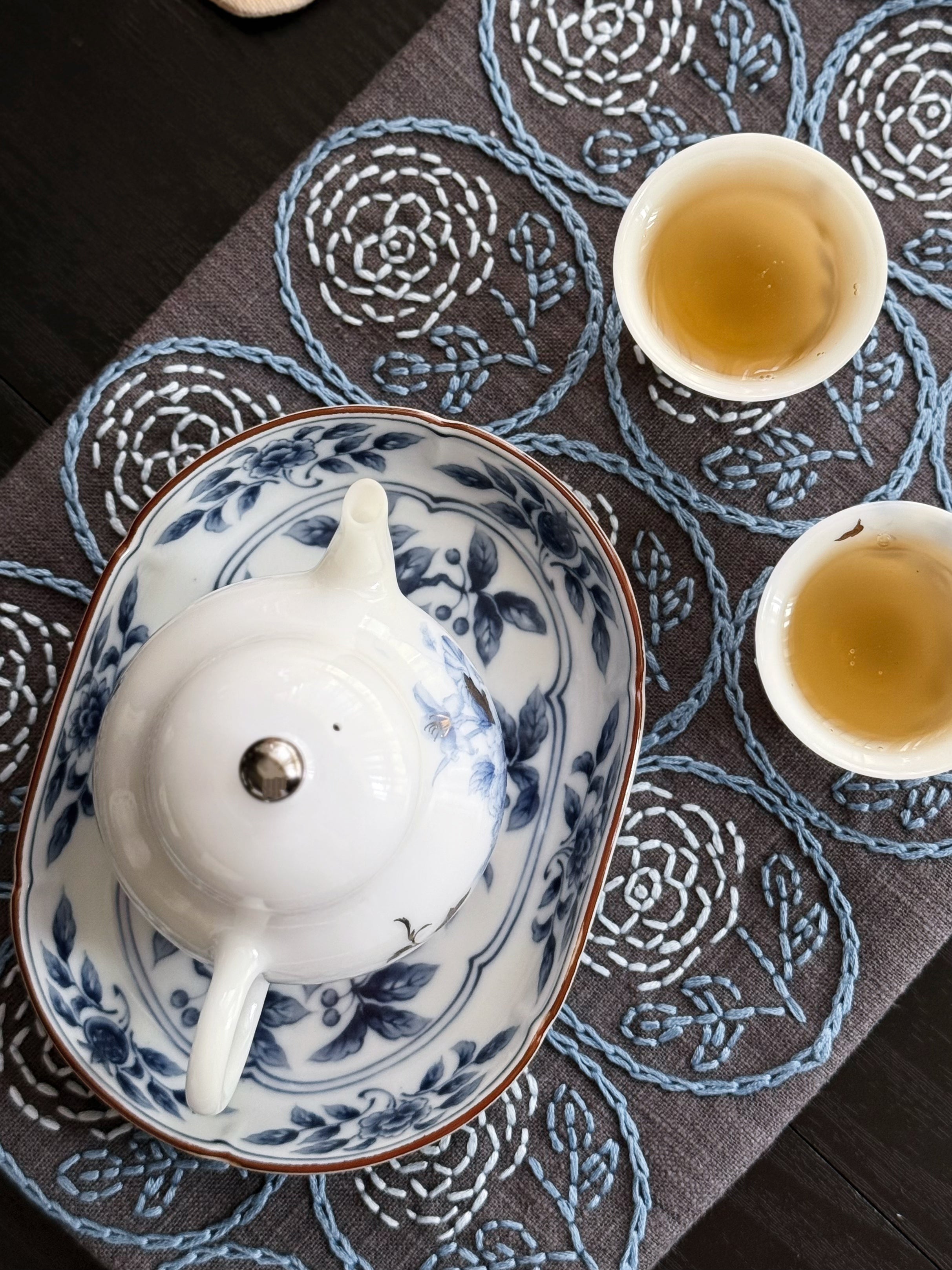Article: Tea & Gout: Friend or Foe? What You Need to Know

Tea & Gout: Friend or Foe? What You Need to Know
Section 1 – Introduction
Tea & Gout: A Delicate Relationship
Does drinking tea cause gout?
It’s a question as old as the teacup itself. Tea is one of the world’s most beloved beverages, celebrated for its calming ritual and rich cultural heritage. Yet for those concerned about gout—a painful form of arthritis triggered by high uric acid levels—the role of tea remains a source of curiosity and caution.
Scientific research shows that tea contains both beneficial compounds (like antioxidants and polyphenols) and purines, which may influence uric acid metabolism. This dual nature makes the story of gout and tea more nuanced than a simple yes-or-no answer.
At Blissful Reserve, we believe tea is not just a drink but a mindful daily ritual. In this article, we’ll explore what science says about tea and gout, examine the best tea choices for health-conscious individuals, and share practical tips for turning every cup into a balanced, nourishing moment.

Section 2 – Deconstructing Tea and Gout: From Uric Acid to Daily Habits
Tea is complex, and its relationship with uric acid depends on more than just the leaves themselves. Key components include:
Component |
Potential Effect on Gout/Uric Acid |
Evidence Strength / Reference |
|---|---|---|
| Purines | Naturally present in tea leaves; may increase uric acid, especially with very strong or excessive tea consumption | Moderate [1] |
| Polyphenols & Catechins | Powerful antioxidants; may reduce inflammation and support joint health | Strong [2] |
| Caffeine | Mild diuretic: may cause short-term spikes in uric acid but not linked to long-term risk | Moderate [3] |
How daily habits matter:
-
Brew strength: Strong tea has higher purine concentration. Moderate brewing helps reduce risk.
-
Type of tea: Black and green teas have more purines than most herbal teas.
-
Lifestyle context: Hydration, alcohol, and high-purine foods influence whether tea acts as friend or foe.
In short, drinking tea and gout management depends less on the tea itself and more on how much, what kind, and what else you consume alongside it.
Section 3 – Tea and Gout: What Science Says
1. The Concern: Purines in Tea
Unlike coffee, tea leaves naturally contain purines—the compounds that can break down into uric acid. However, studies show that the actual purine content in brewed tea is far lower than in purine-rich foods like organ meats or shellfish [4]. This means moderate tea drinking rarely poses the same risks.
2. The Benefit: Antioxidants & Polyphenols
Green tea catechins and black tea polyphenols have demonstrated anti-inflammatory effects, potentially reducing joint inflammation and oxidative stress [5]. These protective compounds may offset some concerns about purines.
3. The Middle Ground
Research findings remain mixed. Some studies report no association between tea and gout risk [6], while others caution that very high consumption of strong tea may contribute to uric acid elevation [7]. The safest conclusion? Moderation matters.
Section 4 – FAQs: Gout and Tea
Q1: Can drinking tea cause gout?
Not directly. Tea does contain purines, but in much smaller amounts than high-purine foods. For most people, moderate tea drinking is safe.
Q2: What is the best tea for gout?
Green Tea is often considered the best tea for gout due to its antioxidant content. Herbal Teas (such as chamomile, ginger, or rooibos) are naturally purine-free and excellent alternatives.
Q3: Is Black Tea bad for gout?
Black tea has higher purines than green or white tea, but moderate intake (1–2 cups per day) is generally well-tolerated.
Q4: Can Herbal Tea help with gout?
Yes. Herbal tea for gout is a safe choice since it is typically purine-free and may offer anti-inflammatory benefits, depending on the herbs used.
Section 5 – Practical Tips for Enjoying Tea Mindfully
-
Moderate your intake – 1–3 cups per day is usually safe for gout-conscious individuals.
-
Choose herbal alternatives – Chamomile, peppermint, or ginger teas provide flavor and calm without purines.
-
Brew lightly – Avoid overly strong tea, which concentrates purines.
-
Stay hydrated – Pair tea with water to support uric acid excretion.
-
Avoid sugary additives – Sweeteners, syrups, or condensed milk can worsen gout risk independently of tea.
👉 At Blissful Reserve, we believe the right cup enhances not just flavor but also well-being. Our artisan tea cups are crafted using bone china and porcelain, designed to retain warmth and elevate the beauty of your daily ritual—helping every sip support both health and harmony.
Section 6 – Conclusion
The relationship between gout and tea is one of balance. While tea contains purines that could, in theory, affect uric acid, its antioxidant properties and cultural role as a calming ritual make it far from an enemy. For most people, moderate tea drinking is safe—and may even be beneficial.
The key is choosing wisely: enjoy lighter brews, embrace herbal tea for gout-friendly alternatives, and pair your cup with an overall healthy lifestyle.
At Blissful Reserve, we see tea as more than a beverage. It’s a moment of reflection, balance, and quiet luxury. By choosing the right tea and the right cup, you turn a daily habit into a mindful ritual—one that nourishes both body and spirit.

References
[1] Clifford AJ, Story DL. Levels of purines in foods and their metabolic significance. Am J Clin Nutr. 1976.
[2] Cabrera C, Artacho R, Giménez R. Beneficial effects of green tea – a review. J Am Coll Nutr. 2006.
[3] Kiyohara C, Kono S, Honjo S, et al. Caffeine intake and serum uric acid levels: the Fukuoka Study. Int J Epidemiol. 1999.
[4] Kaneko K, Aoyagi Y, Fukuuchi T, Inazawa K, Yamaoka N. Total purine and purine base content of common foodstuffs for facilitating nutritional therapy for gout and hyperuricemia. Biol Pharm Bull. 2014.
[5] Yang CS, Landau JM. Effects of tea consumption on nutrition and health. J Nutr. 2000.
[6] Choi HK, Curhan G. Coffee, tea, and caffeine consumption and serum uric acid level: the Third National Health and Nutrition Examination Survey. Arthritis Rheum. 2007.
[7] Dalbeth N, Merriman TR, Stamp LK. Gout. Lancet. 2016.




